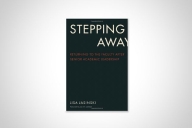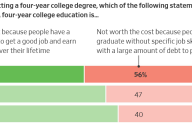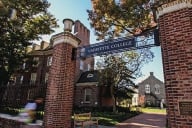You have /5 articles left.
Sign up for a free account or log in.
Sure, Aramark may be able to provide delicious sandwiches, brew a mean cup of coffee, cater important university functions, and do it all at the lowest price. But can it help a sophomore get a job in two years?
That is a consideration Barry University, a private university in Miami, might weigh after administrators rework the university’s process of issuing requests for proposals and evaluating the bids of potential contractors for everything from dining services to office supplies to accounting.
Barry’s administrators see the hundreds of relationships the university has with suppliers of goods and services as an untapped resource to give their students job preparation while they’re in college and potential avenues to postgraduate employment.
“We have a career center like everyone else that works with companies and develops relationships with companies, but we’ve never done much to connect the business side of the university with the academic side,” said Sara Herald, vice president for institutional advancement and external affairs. “We’ve never had a dialogue about how they could help.
“There are hundreds of vendors who work with the university, and we don’t necessarily introduce them to students. We think there’s potential there.”
The move reflects an increasing concern among potential students and their families about the employment outcomes for graduates and a shifting notion of how universities should think about career services in that new environment. In a recent survey of parents for Inside Higher Ed by Gallup, about 40 percent of parents said getting a good job was the reason their child would get an education beyond high school.
At the same time, the emphasis on students' employment prospects raises concerns in some corners of the academy about how much emphasis should be placed on such characteristics, as well as whether including anything in the RFP process other than price and quality could be bad business. The fear is that administrators will sacrifice quality or price, thereby sticking students with a larger bill or worse service, in an effort to secure different objectives.
The National Association of Educational Procurement, which did not return a request for comment on deadline, has a code of ethics that, while it does not touch on the issue of secondary considerations in awarding contracts, notes that procurement officers should "Strive to obtain the maximum value for each dollar of expenditure." At the same time, the code also notes that procurement officers should "Give first consideration to the objectives and policies of my institution." For Barry, seeking career development and employment opportunities for students might be one of the university's top objectives and therefore not conflict with the code.
Herald said the university's decision to consider including such a provision in future RFPs was motivated by two initiatives. First, the university was considering reworking the way it issues RFPs in the first place, with an eye toward making it more efficient. “We constantly ask ourselves, ‘Are we being smart about what we’re buying and how we’re buying it?’ “ Herald said. “Are we making sure we’re putting as much revenue as possible into educating students?”
The university is also part of a citywide initiative focused on aligning the curriculums of local educational institutions with regional workforce needs. That initiative, as well as the broader questions about graduate employability faced by higher education institutions, has helped focus the university’s attention on producing employable graduates.
"I think more families are addressing higher education in a more holistic way, in the sense that they are looking at it from a value proposition standpoint,” Herald said. “When it comes to liberal arts and critical thinking, families are evaluating the value proposition – does that lead to a greater possibility of economic self-sufficiency?”
Herald said price and quality would still be the dominant factors in the university’s decisions about contracts. But employment opportunities could be used as a secondary consideration. “If someone’s price and quality are about the same, those that would be willing to give internships to our students would be graded higher. It’s not going to be that we buy things more expensively, but if price and quality are the same, it could be a determining factor.”
Herald said she did not know of any other universities that asked potential contractors to propose employment opportunities for students. A spokesman for the National Association of College and University Business Officers said the organization could not provide any perspective on the issue.
Some large vendors with a history of working in higher education already offer such opportunities to the students of institutions they contract with. Karen Cutler, a spokeswoman for Aramark, which provides dining, facility and conference center management to more than 600 educational institutions, said that while career development and internship prospects are not something colleges regularly ask for in their RFPs, the company often proposes them.
“While not required, we feel it is extremely valuable to offer student employment, career development and internship opportunities as part of our client partnerships,” Cutler said in an e-mail. “When we partner with a university, we make a commitment to the campus community well beyond just serving meals or cleaning/maintaining buildings and grounds. We see it as an opportunity to help students earn money and, more importantly, gain valuable work and leadership experience. Ultimately, we believe this as a great way to build our talent pipeline, and hope to encourage students to pursue a career in the hospitality field or (through our facilities partnerships) a career in engineering.”
Cutler added that some colleges do require corporate partners to provide jobs for students to help them earn money during the school year, though that is less about preparing them post-collegiate employment.
While many colleges based their contracting decisions solely on price and quality – many public universities are prohibited by law from considering anything else – it is not unheard of to weigh other factors in awarding contracts. Many colleges and universities give preference to companies who have been contributors to the institution, or who have a long history of working with the institution. Some also weigh environmental or social issues in the consideration. Universities have also required partners, particularly food service providers, to help finance construction of dining halls and other facilities.








